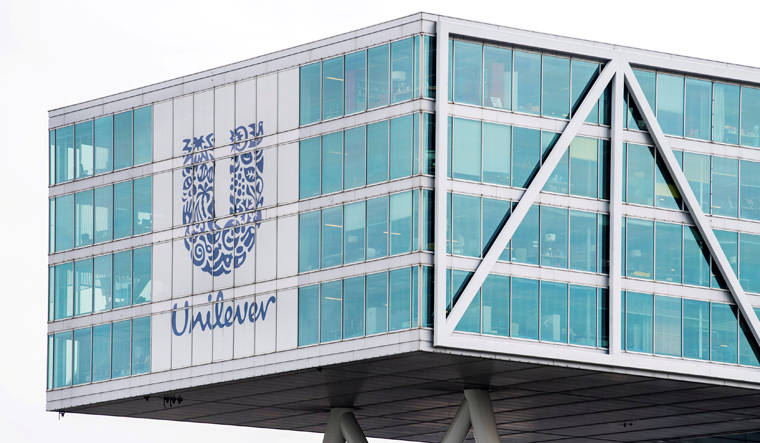With signs of deepening slowdown in consumer spending, volumes (number of units sold) at Hindustan Unilever, the country's largest fast moving consumer goods maker, grew at the slowest pace in the past seven quarters in April-June. The company flagged a moderation in demand, more so in rural markets, and is expecting the near-term demand to remain subdued.
HUL's volumes in the first quarter grew at 5 per cent, versus 7 per cent in the fourth quarter and 12 per cent in the first quarter a year ago.
Overall, the maker of Lux soap and Red Label tea reported a quarterly net profit of Rs 1,795 crore, up 15 per cent year-on-year, while revenue grew 6 per cent from a year ago to Rs 10,197 crore.
India's economy has slowed in the past few quarters with the GDP growth slipping to 5.8 per cent in the January-March quarter. A slowdown in consumer spending has been visible across segments such as automobiles, and FMCG is no exception.
Srinivas Phatak, the CFO of HUL, pointed that while a slowdown was visible across rural and urban markets, rural markets, which used to grow at around 1.3 times urban growth, were now growing at par, which was impacting overall growth.
"This is products of day-to-day consumption. Having said that, it also can't be completely independent of what is happening with real incomes and GDP. If you see rural income, net of inflation, low-single digit is their income growth. There is no additional impetus, which has come. Food inflation is again very low. It is important because it is the income in the hands of rural consumers. So, there has been a moderation and if there is a moderation, people will tighten a bit and therefore, consumer sentiment does come down," said Phatak.
Growth was particularly impacted in the beauty and personal care segment, where sales grew just 4 per cent. Home care sales, on the other hand, were up 10 per cent and foods and refreshments sales rose 9 per cent.
"Growth in personal wash has been muted, which has brought down the growth of beauty and personal care. While the premium segment has been doing well, the popular (mass brands), namely where we had Lux and Lifebuoy, the performance was muted," said Phatak.
Prices of vegetable oil, which is a key ingredient in soaps, have come down around 20 per cent, in turn driving companies to cut product prices. However, that hasn't given enough lift to volumes given the overall slowdown.
HUL executives, however, say the market is not in a tailspin and remain hopeful that the various measures announced by the government, like doubling farm income, spending on rural roads, recapitalising public sector banks and the interest rate cuts by the Reserve Bank of India, should help drive consumption over the medium to long-term.
"We would like to believe that the second half of the fiscal would be better than the first half. When you start constructing roads, certainly in the villages adjoining the roads, you see the difference. When houses get constructed, it makes a difference. This is not like quantitative easing, but fundamentally right steps. So, we will expect things to start moving upwards," said Sanjiv Mehta, chairman and MD of HUL.
The slowdown in growth reported by HUL resonates that of the wider industry. Market research firm Nielsen recently cut its calendar year 2019 growth forecast for the FMCG sector to 9-10 per cent, versus 11-12 per cent it had forecast earlier.



